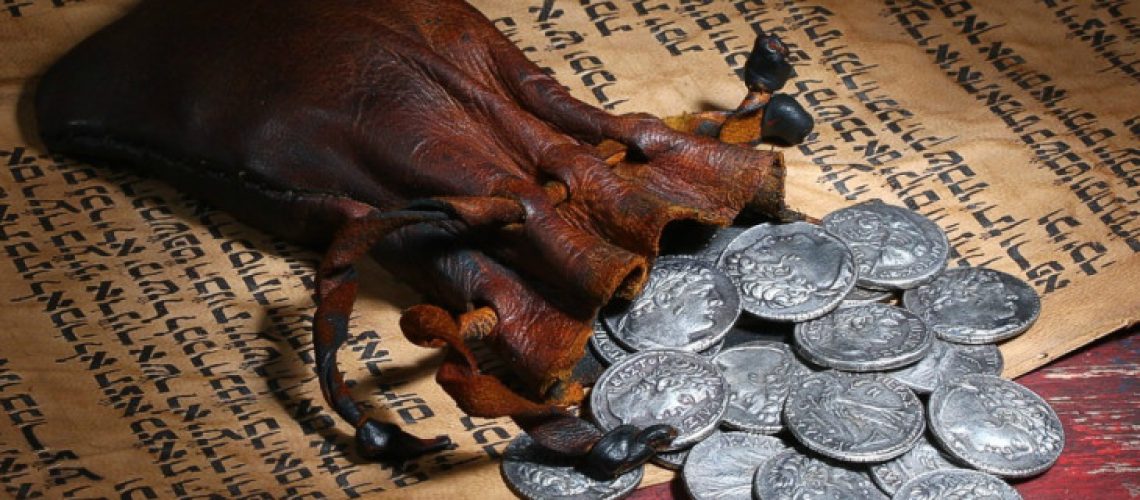
Pastor Mary Anderson
Pastor Anderson is Pastor of Christ Lutheran Church
You probably have indications that people have changed around you. Maybe it’s their body language – they once always gave you a hug when they saw you, now it’s a handshake with a forced smile – or maybe it’s their tone or the way they address you. Many moons ago, a colleague about 20 years my senior said, “You can always tell how you’re talked about at home by the way the children (of the church) treat you. Adults can fake it. Kids can’t.”
While I have always asked to be called “Pastor Anderson” when people in the parish ask, “What should we call you?”, I have noticed over the years that something might be up when parishioners change how they address me. I don’t mean that some start calling me Pastor Mary because they like that better or feel closer to me. But I mean when there has been some tension between me and a parishioner, and I notice that they now just call me “Mary”. It’s a signal that they have lost respect for me in the office of pastor. That might be my fault, theirs, or a combination or the two, but in any case, the evidence is there that the relationship has changed. Once changed, it’s hard to get it back.
As we ponder now the Passion according to Matthew this Sunday, several commentators have noticed that the way Judas addresses Jesus is different from the other disciples. At the last supper when Jesus says one of them will betray him, eleven of the disciples say, “Surely, not I, Lord!” Judas is the only one who responds, “Surely not I, rabbi!” From his language, he doesn’t see Jesus as one who is authoritative, some holy one from God, only a rabbi like so many others. Dime a dozen.
Because Judas has been painted through the millennia with the opaque color called “Betrayer”, it’s hard to see him for who he is. Peter has a tough background as a denier but ends up redeeming himself and being redeemed by Jesus. Judas does not have this chance since his betrayal drove him to suicide.
The name of Judas is the worst kind of name-calling. I think he scares us and so we don’t want to get to know him better. If we start stripping that paint off his face, he might start looking too much like us.
Before Judas had his night in the darkness, he was one of the twelve disciples, called by Jesus just like all the others. He was there around the nightly campfires with Jesus, hearing the teaching, watching the miracles, and participating in deep conversations along the way. He also was highly trusted since the gospels tell us he was the treasurer of their little homeless band of disciples. At the last supper he was there too. It seems from Matthew 26:23 that Judas was sitting next to Jesus at that meal since Jesus says the one to betray him is, “the one who has dipped his hand into the bowl with me.”
Judas, of course, is the only man of history who betrayed Jesus in a way that led to his arrest and crucifixion. Sorry, Judas, you’re stuck with that one.
While we can’t get to know more of his story than we already do (unless researchers discover Judas’ private journal or something), the journey to faith and away from faith is a road many of us travel. People are drawn to the light of God and tempted to turn away from it all the time. While Judas is unique in history, the gospels themselves record people around Jesus who were called to follow, but declined; those who followed and then turned away; those who, like Peter, struggled to be faithful but won the wrestling match as a wounded warrior.
We assume Judas wanted Jesus to be a certain kind of King, of the conquering hero type. When it seemed Jesus wasn’t going in that direction; he was disillusioned. It remains a mystery as to why he didn’t just walk away rather than betray. We’ll never know.
Lent and certainly Holy Week invite us into these stories of darkness and light and to examine our own souls. If we’re brave enough, we are invited to examine our discipleship through the life of each character in the story. Instead of hovering above the story at a distance (spiritual-distancing!), enter into the story and walk the way with Jesus. While many of us cannot be pilgrims who travel to Jerusalem at this time of year to walk the streets and visit the places in the story; the liturgies of Holy Week enable us to “worship in place” and be there again through scripture, ritual, and song. Through these liturgies, we are pilgrims-in-place.
May your Holy Week be a rich and meaningful time, even in these strange and difficult times. I suspect we will all learn much about ourselves, our discipleship and our spirituality during these days. Stay strong. Remain prayerful. Christ is with you.


